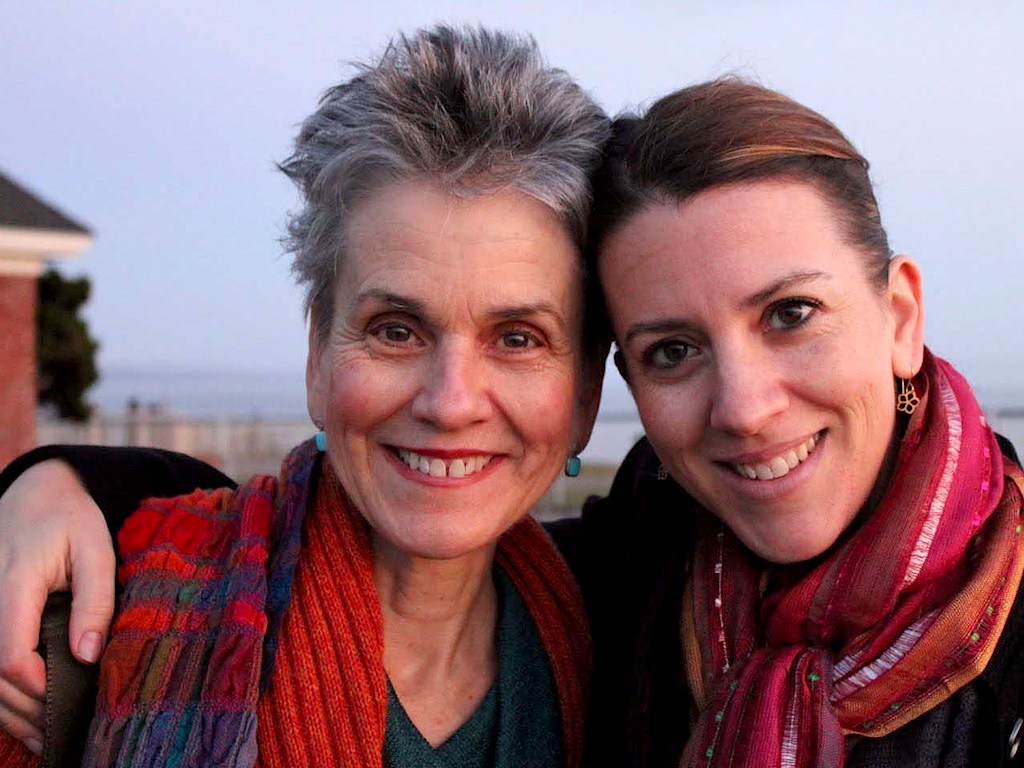4 Mins Read
While the word “plant-based” seems to have only made its way into major restaurant chains, supermarket shelves and recipe books in recent years, the trend has its roots carved out of a groundbreaking book in the 1970s. Titled Diet for a Small Planet, author Frances Moore Lappé pioneered a new way to think about food and its relationship to the planet – a legacy carried on by her daughter Anna Lappé, an activist for sustainable food systems, who went on to pre-empt the “Vote With Your Dollar” movement.
While it’s a stretch to say that a single book alone inspired the global uprising in sustainability-minded plant-based eating that we have today, where burger patties are made from beans and legumes, and cheeses from nuts and seeds, a certain mother-daughter duo definitely played a huge role in this systemic change.
The concept of sustainable food systems arose in the 1970s, with the publication of Frances Moore Lappé’s 1971 best-selling book Diet for a Small Planet, which detailed a food system unequipped to deal with global hunger brought on by rapid population growth and the effects of sustained environmental degradation.
In Lappé’s revolutionary book, she concluded that there was in fact enough food to feed the entire planet, but the problem resided in distribution. Speaking to documentary news organisation Retro Report, Lappé said that she “sat there hour after hour literally putting two and two together,” eventually figuring out that the food system that was in place was “inefficient, unjust, illogical and destructive”.
Too much food simply went to feed animals rather than humans, which eventually only left behind meat for a portion of the human population but not the other.
A number of scientific studies went onto prove the inefficiencies of animal protein. According to the United Nations FAO, a whopping 80% of agricultural land worldwide is used to sustain livestock – a proportion set to continue increasing as the demand for meat is driving farmers to continue deliberate land clearing for more cattle ranching, a process that not only immediately releases massive amounts of toxic pollution into the air, but over time contributes enormous carbon dioxide and methane emissions to produce beef.
In total, livestock farming accounts for 15% of global greenhouse gas emissions – with two-thirds of the total coming from cattle – yet in spite of the huge amount of resources and emissions required, livestock provides just 17% of the calories consumed by humans.
For Lappé, it was simple – why were some people eating meat when there are enough plants and grains to go around to feed every single person inhabiting the Earth?
Lappé’s legacy of igniting one of the most important movements of today – one that holds the hope of meeting the demands that a climate-striken world population of 10 billion will bring – doesn’t end there. Along with her daughter Anna Lappé, who is an activist and writer in her own right, the duo created Small Planet Institute dedicated to educate and fund research for the root causes of hunger and poverty.
Anna Lappé preemptively coined the term “Vote With Your Dollar” too in a 2003 article where she wrote: “Every time you spend money, you’re casting a vote for the kind of world you want.”
Fast-track a couple of decades on to where we are now, the awareness about the planet-damaging consequences of meat consumption has grown immensely, much of it owing to sustained reporting, scientific consensus and environmental campaigns. Plant-based eating has become more than a choice for animal welfare, ethics or health – it has been thrust into the mainstream as the more sustainable choice for food when it comes to the future of the planet.
Although big meat and dairy have attempted to push back against the trend, claiming that plant-based foods are less nutritionally worthy or that animal agriculture does not contribute as many greenhouse gas emissions as documented, it hasn’t stopped the exponential growth in sales of the kinds of innovative plant-based substitutes we have today.
According to figures from The Economist, purchases of meat analogues increased by 37% in the past two years while real animal meat remained stagnant.
And it isn’t just food tech startups driving plant-based innovation. Realising that this “fad” is going nowhere, – FMCG giants and global restaurant chains are jumping on it too. Most recently, Nestlé revealed plans to launch more plant-based options across all product categories, brands and in existing lines, calling it a “once in a generation opportunity” for growth.
With big corporations on board, plant-based food will steadily scale-up and become affordable and accessible to the masses, a change that just might come in time to turn our planet’s climate emergency around. And we’ve got the Lappés to thank for planting the seeds of this revolution.
Lead image courtesy of Anna Lappé.




